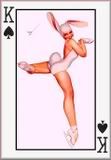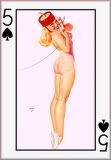Is This Guy on Obamas cabinet list? Nouriel Robini:
This Column Stolen From This Blog
"Told You So"
"Told You So"
- On Sept. 7, 2006, Nouriel Roubini, an economics professor at New York University, stood before an audience of economists at the International Monetary Fund and announced that a crisis was brewing. In the coming months and years, he warned, the United States was likely to face a once-in-a-lifetime housing bust, an oil shock, sharply declining consumer confidence and, ultimately, a deep recession. He laid out a bleak sequence of events: homeowners defaulting on mortgages, trillions of dollars of mortgage-backed securities unraveling worldwide and the global financial system shuddering to a halt. These developments, he went on, could cripple or destroy hedge funds, investment banks and other major financial institutions like Fannie Mae and Freddie Mac. (ok I can end the story there and Roubini get's a Hall of Fame membership)
- The audience seemed skeptical, even dismissive. As Roubini stepped down from the lectern after his talk, the moderator of the event quipped, “I think perhaps we will need a stiff drink after that.” People laughed — and not without reason. At the time, unemployment and inflation remained low, and the economy, while weak, was still growing, despite rising oil prices and a softening housing market.
- When the economist Anirvan Banerji delivered his response to Roubini’s talk, he noted that Roubini’s predictions did not make use of mathematical models and dismissed his hunches as those of a career naysayer. (scoreboard?)
- But Roubini was soon vindicated. In the year that followed, subprime lenders began entering bankruptcy, hedge funds began going under and the stock market plunged. There was declining employment, a deteriorating dollar, ever-increasing evidence of a huge housing bust and a growing air of panic in financial markets as the credit crisis deepened. By late summer, the Federal Reserve was rushing to the rescue, making the first of many unorthodox interventions in the economy, including cutting the lending rate by 50 basis points and buying up tens of billions of dollars in mortgage-backed securities.
- “He sounded like a madman in 2006,” recalls the I.M.F. economist Prakash Loungani, who invited Roubini on both occasions. “He was a prophet when he returned in 2007.”
- Over the past year, whenever optimists have declared the worst of the economic crisis behind us, Roubini has countered with steadfast pessimism. In February, when the conventional wisdom held that the venerable investment firms of Wall Street would weather the crisis, Roubini warned that one or more of them would go “belly up” — and six weeks later, Bear Stearns collapsed. (Kool Aid 0 - Roubini 3)
- Following the Fed’s further extraordinary actions in the spring — including making lines of credit available to selected investment banks and brokerage houses — many economists made note of the ensuing economic rally and proclaimed the credit crisis over and a recession averted. (where have we heard that before? Oh... last week) Roubini, who dismissed the rally as nothing more than a “delusional complacency” encouraged by a “bunch of self-serving spinmasters,” (oh I need to borrow some of that phrasing - so good Roubini - so good) stuck to his script of “nightmare” events (Kool Aid 0 - Roubini 4)
- “I’m not a pessimist by nature,” he insisted. “I’m not someone who sees things in a bleak way.” Just looking at him, I found the assertion hard to credit. With a dour manner and an aura of gloom about him, Roubini gives the impression of being permanently pained, as if the burden of what he knows is almost too much for him to bear. He rarely smiles, and when he does, his face, topped by an unruly mop of brown hair, contorts into something more closely resembling a grimace.



